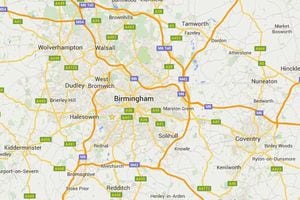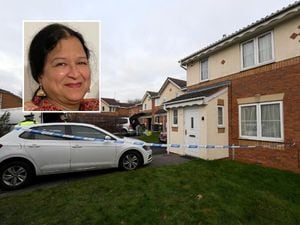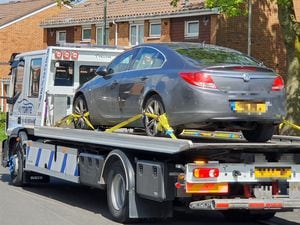West Midlands Combined Authority will reform public services
The new West Midlands super council will reform health and public services and, at the same time, tackle a £22.8 billion spending gap, the chief executive of Birmingham City Council has said.

Speaking to the Express & Star, Mark Rogers said he saw the prospect of a West Midlands Combined Authority as a chance to get people into work.
But he stressed there would be no takeover of the Black Country by Birmingham.
Mr Rogers also said he saw the authority as a chance for councils to create their own 'enterprise zones' – repeating the success of Jaguar Land Rover's £500 million engine plant in Wolverhampton – by offering incentives such as relaxed planning rules.
Currently enterprise zones have to be signed off by the government but the combined authority would seek powers held in Whitehall to make locally the decisions on attracting investment and boosting skills.
Mr Rogers said: "We also have to think about public service reform and how it links in with our economic work. "There needs to be a better approach towards pooling the resources we have."
He said the West Midlands was not looking to copy Greater Manchester's bid for control over the entire £6 billion worth of NHS budgets for its area. "But we are going to need to make a stronger partnership with the NHS in order to undertake reform," he said.
"Our health economy will be a bigger one. We won't look to pool it all as Greater Manchester is but I suspect we will look at a series of deals and have a stronger relationship with the NHS."
The idea is that different health boards would work more closely, saving money as well, rather than deal just with their own separate areas.
Experts estimate there is a £22.8 billion gap between what the Treasury gets from the West Midlands in taxes and what it spends on public services.
"We need to make sure each region of the country is sufficiently productive that the cost of public services is less than the economic return."
The combined authority, which is likely to be led by a directly elected mayor, will see councils working together on transport, skills and employment as well as getting former industrial land redeveloped either for businesses or housing.
Wolverhampton, Sandwell, Dudley, Walsall, Birmingham, Coventry and Solihull councils are going to form the combined authority but more than a dozen district councils including Cannock Chase, Lichfield and Wyre Forest can join if they want to.
If they do it will represent the second-largest economy in Britain.
The local enterprise partnerships of the Black Country, Greater Birmingham and Solihull and Coventry and Warwickshire will also be involved. They work to support businesses and attract investment.
Mr Rogers said: "We're getting our acts together and working better with each other.
"The Chancellor was prepared to extend our enterprise zone in Birmingham. We need to think what powers we want to make that happen for ourselves."
The chief executive said he believed the Black Country had nothing to fear from the new authority either.
"It's not about creating a body that sucks in the powers of individual councils. It's about bringing them together to make decisions. Each council will still have their say."
The name Greater Birmingham has been ruled out by politicians including Sandwell's leader Darren Cooper and Walsall's Mike Bird because it did not reflect all the different cities and districts involved.
Mr Rogers said he was 'agnostic' about the name of Birmingham being in the title.
But he said: "It doesn't matter what we call it, people will choose their own name. Some investors will choose to say they are coming to Greater Birmingham.
"The bottom line is we need to make sure there are more and better jobs for the West Midlands, that we develop skills and that people get better pay."





